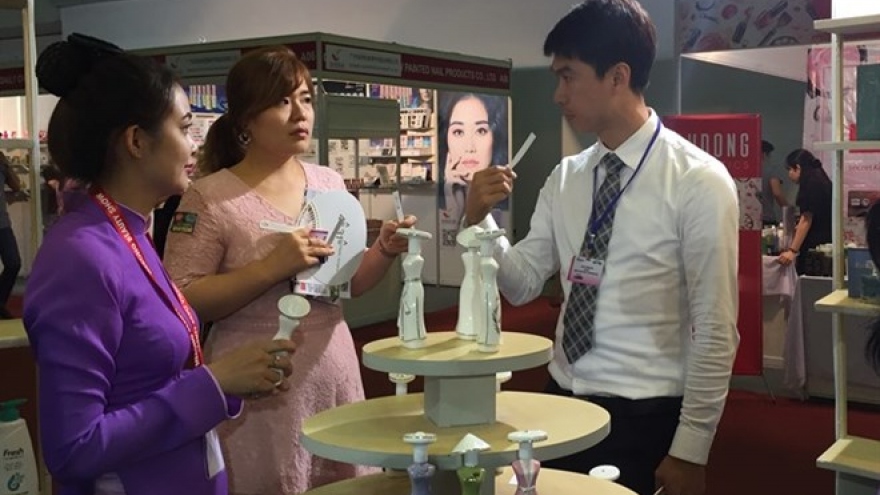Cosmetics manufacturers face thorny path to develop organic products
Avoiding the crowded industrial cosmetics market segment, Vietnamese manufacturers are developing organic products. However, the path to success has not been smooth.
 |
A report on the cosmetics market released by Kantar Worldpanel shows that 80% of urbanites buy at least one beauty care product a year, with one-fourth of consumer spending on personal care items reserved for beauty care products.
Oriflame, the brand from Sweden, reported a growth rate of 18%. L’Occitane doesn’t make public its revenue, but the presence of its products at nearly all shopping malls show its prosperity.
Multinational conglomerates with factories in Vietnam such as Unilever, Kao and P&G have been thriving with products made of natural materials from Vietnam, such as green tea, cucumber, algae, aloe, honey, ginseng, lemon and pomelo peel.
Analysts say that though foreign brands are dominating the market segment, Vietnamese cosmetics manufacturers still have opportunities to earn money in the field because they understand the functions of Vietnamese traditional herbs and can take initiative in the material supply.
Vo Thi Lieu, director of the Vinh Tan Technology Company, which makes skin care products from trom tree (Sterculia foetida) resin, said in the first months after the products were marketed, the company sold VND300 million worth of products and now the sales growth rate is at least 20%.
The company has spent big money to import a production line from Japan meeting GMP standards, with capacity of 43 million products per annum, because it believes the natural cosmetics market in Vietnam has great potential.
Doan Van Khanh, director of Long Thuan Private Enterprise, said the company earns VND1 billion at least from the sales of pomelo blossom essential oil through online channels alone.
Meanwhile, Christine Nguyet, director of Skina Cosmetics, said the sales of the company were growing 10% monthly.
Though business has been thriving, Vietnamese manufacturers complain that they find it difficult to scale up their production scale.
Nguyet said Skina only has enough materials for small production scale. To expand production, the company would have difficulties because it still cannot develop organic material areas, and imports of raw materials will increase the production cost.
Pham Minh Thien, director of Co May Company, said he harbored a plan of making high-end products such as rice bran essential oil and lotus essential oil. However, the plan is still on paper.
“In order to make organic products, we will have to find a stable supply of organic rice bran. But it is very difficult to find supply sources,” he said.


